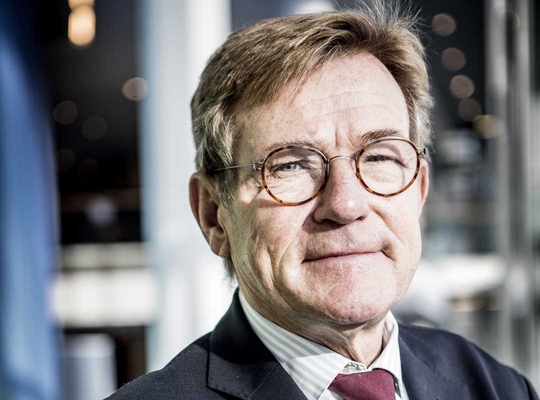You are here
We can make Putin’s crew pay for Ukrainian reconstruction — smartly

“Getting Russia to contribute to the effort won’t be easy, and Western leaders must proceed with caution,” says Johan Van Overtveldt, chairman of the European Parliament’s budget committee and Belgium’s former minister of finance (2014-2018) on politico.eu.
Within the significantly, if not overly, ambitious agenda the European Union has been outlining over the past months, the reconstruction effort needed for war-torn Ukraine occupies a prominent place.
Aside from the few diehard fans of Russian President Vladimir Putin that remain within the EU — such as Hungary’s Prime Minister Viktor Orbán — there’s now a growing consensus that Putin and his motley crew must contribute to this major effort in a significant way. Still, it won’t be easy.
European Commission Vice President Valdis Dombrovskis recently argued, unequivocally, for the pursuit of the “the aggressor pays” principle. Less popular, but also gaining more traction, is the idea to use at least part of the Russian assets frozen by Western authorities — around $600 billion in total — for reconstruction.
Since the enormous devastation that Ukraine and its people are suffering is entirely due to Russia’s brutal and unprovoked invasion, both these principles outlined are on the right side of history. But with respect to the confiscation of frozen Russian assets — or part of them — it’s imperative that the EU and other Western authorities execute this in a careful and well-considered way.
Before anything else, authorities must make sure the confiscation isn’t carried out in a judicial vacuum. Given the blatant and extremely violent aggression the sovereign state of Ukraine and its people have been victim to, as well as the war crimes committed by members of the Russian army under direct orders from the Kremlin, a strong judicial case justifying the confiscation of Russian assets can and should be built — and it should be defended publicly.
The EU’s always on a high horse as far as the rule of law is concerned. And in this specific case, it should be on that same horse.
At the same time, some leaders, including Germany’s Minister of Finance Christian Lindner, are also arguing the confiscation should be limited to the $300 billion-worth of assets belonging to the Russian central bank, and that the enormous fortunes of the oligarchs should be left alone. I disagree.
Much of the wealth amassed by Russian oligarchs originates from the Russian state. Catherine Belton’s excellently researched “Putin’s People” is one long testimony to this sad truth. And accordingly, there’s absolutely no reason to exclude a priori large parts of oligarchs’ massive assets from the confiscation exercise.
However, even though Ukraine and its people can currently count on a huge well of highly deserved sympathy from the EU, Western authorities can’t, and shouldn’t, be blind to the reality of Ukrainian society either. In 2021, Ukraine was listed 122nd out of 180 countries in Transparency International’s Corruption Perceptions Index. The country still has a lot of work to do in fighting corruption and improving transparency.
For the sake of the Ukrainian people, Western authorities should be firmly respectful of Ukrainian sovereignty but equally careful in the use of confiscated money.
Finally, we must also start to differentiate between Vladimir Putin and the kleptocratic mobsters around him, and the Russian people in general. The disastrous mistakes made at the peace conference of Versailles after World War I must be avoided. As masterfully described by economist John Maynard Keynes, the Versailles Treaty imposed such harsh measures on the German population, it created the conditions that made the rise of somebody like Hitler and his Nazi gang almost inevitable.
We must explain to Ukrainian President Volodymyr Zelenskyy, his claim that “if the aggressor loses everything, then it deprives him of his motivation to start a war” isn’t in accordance with what history teaches us.
To avoid the rise of an even more anti-Western and anti-democratic despot than Putin, the West must start taking the Russian population, who have also been betrayed and robbed by Putin and tricked by his lies, into account. And it must start now.

